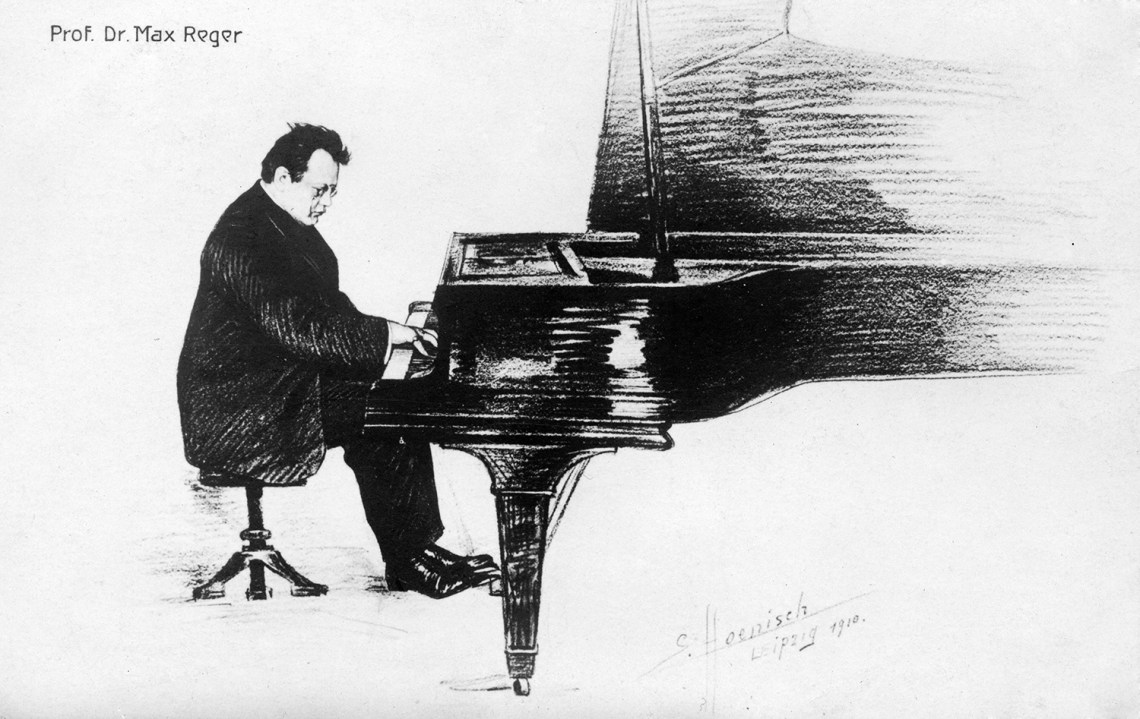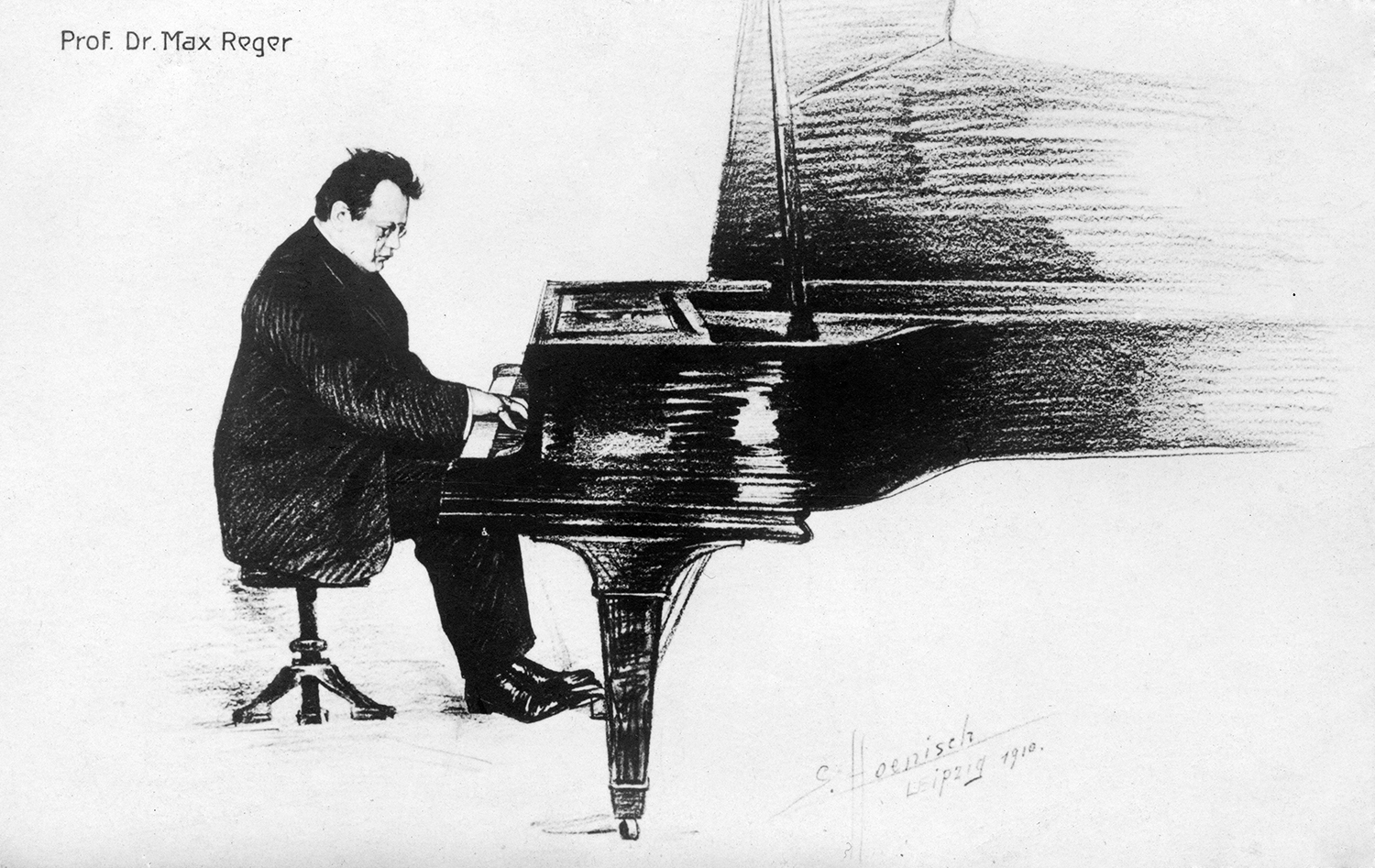The German composer Max Reger, born 150 years ago next week, is mostly remembered today for countless elephantine fugues and one piece of lavatory humour. When he was savaged by the Munich critic Rudolf Louis, he wrote back to him: ‘Sir, I am sitting in the smallest room of my house. I have your review before me. In a moment it will be behind me.’ The quip was probably borrowed from Voltaire, but since no one can find it in his writings the credit has gone to Reger.
Max Reger was probably the most technically accomplished writer of large-scale fugues since Bach
But let’s not dwell on the image of the morbidly obese composer taking his revenge. What’s interesting is that Reger was hated by so many critics. Then, as now, it was a thought crime for a young man (he died of a heart attack at 43) to make a point of embracing tradition. Reger was probably the most technically accomplished writer of large-scale fugues since Bach; he revelled in his fluency and loved to rub progressive noses in it. He loved to take a musical morsel from the past – a minuet by Telemann, a bagatelle by Beethoven – and examine it from every conceivable angle before feeding it into his giant fugue-machine.
His orchestral Variations and Fugue on a Theme of Hiller is based on a tiny tune by Johann Adam Hiller (1728-1804), the first Kapellmeister of the Leipzig Gewandhaus. In Franz Konwitschny’s recording of the piece with that orchestra, Hiller’s theme lasts 27 seconds while Reger’s musings on it stretch to 45 minutes.
That sounds gruesome, so I was surprised to read the legendary critic Tully Potter describe the Konwitschny Hiller Variations as ‘one of the great recordings of anything’. Then I listened to it and was beguiled by the richness of Reger’s orchestral flavours and his inexhaustible intellectual energy. Perhaps only Beethoven’s Diabelli Variations derives so much from so little. Needless to say, though, Reger doesn’t come close to matching that miracle. A better comparison would be with Brahms’s orchestral Haydn Variations, but here too Reger’s unwillingness to edit his thoughts leaves him trailing far behind.
In his defence, however, these calorific sets of variations, whether written for orchestra or for solo pianists with stupendous techniques, don’t represent Reger at his best. His mightiest organ chorale preludes are the most splendid since Bach’s and some of his later chamber music is almost as fine as Brahms’s. Wilhelmine Germany was littered with tribute acts to the three Bs. Max Reger wasn’t one of them.
In the captivatingorchestral Serenade in G major, fragments of melody flit past faster than you can follow them on first hearing. Something unusual is happening and in his essay on the Serenade the great Donald Tovey put his finger on it. Reger composed by improvising on paper. He piles one metre on top of another as an organist does, changing keys promiscuously. Just sit back and enjoy the ride, says Tovey – and if you do so often enough you’ll discover that, despite Reger’s apparent restlessness, ‘his sentences are as infallible as Gladstone’s, who is said never to have required corrections in Hansard, though he could do without a full stop for pages together’. But what you’re more likely to notice is the boldness and wistfulness of the writing.
For example, his cantata on ‘O Haupt voll Blut und Wunden’, which you might imagine would be a mountain of Lutheran stodge, floats a solo oboe above the great Passion chorale; the result is as haunting as any of Bach’s settings. Incidentally, I’d always assumed that Reger was a Protestant, but not so. He came from a devoutly Catholic Bavarian family, fell in love with a Lutheran divorcée, and when he married her he was excommunicated. The distress this caused him was one of the reasons he turned into an alcoholic.
Many Germans at the time were obsessed with dieting, and one wonders if Reger’s famously swollen appearance meant that audiences actually listened for a bloated quality in his music. On the other hand, perhaps it was actually there, at least in the large-scale works. Alfred Brendel once said that ‘given the choice between playing Reger’s piano concerto or dying, I’ve always thought I’d prefer to die’, and it’s true that few pianists can hold an audience’s attention with its relentless concertante writing, unrelieved by catchy tunes.
Following Tovey’s advice, I listened to it again and again, in eight recordings including Rudolf Serkin’s supposedly authoritative version with Ormandy and the Philadelphians. When the penny dropped, it was thanks to a particular soloist rather than repeated exposure. Marc-André Hamelin is a super-virtuoso who can untie the knottiest textures with a twist of jazz. In the finale of his Hyperion recording of the Reger concerto with Ilan Volkov and the Berlin Radio Symphony Orchestra, he throws off the sub-fusc to reveal a madcap frivolity that every other performance misses. I’m sorry to keep returning to the subject of poor Reger’s waistline, but it did remind me of the old saying that heavy people on the dance floor can be deceptively light on their feet.








Comments